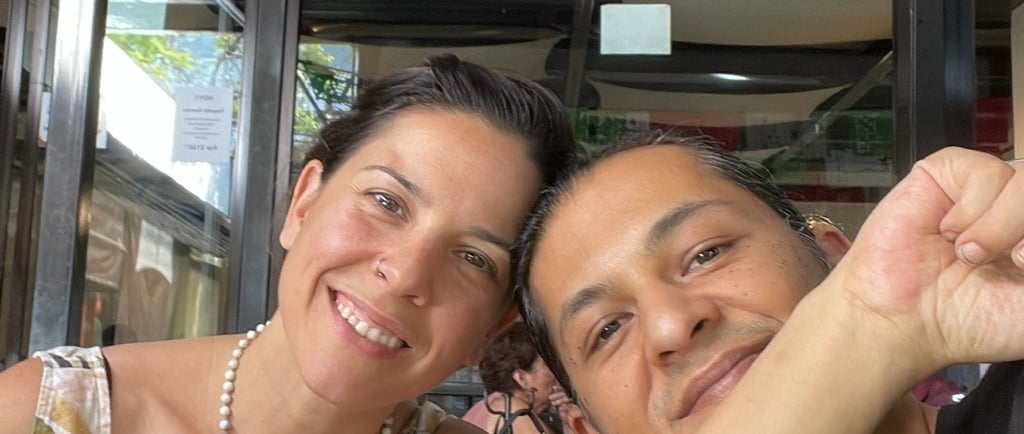Guiding My First Clients in Mexico: The Most Common FAQ's I Was Asked
How I Guided My First Buyers in Mexico: Answers to Their Top Questions A documentation-based breakdown of the most frequent questions foreign buyers ask when purchasing property in Mexico. From fideicomisos to closing costs and legal documents, every detail is mapped and explained with precision.
CHRISTY AND HORACIOMEXICO REAL ESTATEMEXICOEXP REALTY
1/22/20212 min read


Guiding My First Clients in Mexico: What Buyers Asked and How I Answered
Landing in Mexico meant rebuilding fast. There was no onboarding deck for cross-border real estate, only questions, legal gaps, and buyers asking for clarity. I structured everything from scratch and documented each answer as I went.
These were the most frequent buyer questions, and this is how I responded.
Can foreigners legally purchase property in Mexico?
Yes. Buyers can own property outright in most areas. If the property is located within 50 kilometers of the coast or 100 kilometers from a border, ownership is routed through a fideicomiso.
What is a fideicomiso, and when is it required?
A fideicomiso is a renewable 50-year bank trust. The title is held by a Mexican bank, but the buyer retains full use, resale, and improvement rights. It’s required in all restricted zones and is fully compliant with Mexican law.
What are typical closing costs?
Closing costs range from 5 to 7 percent of the property price. This covers:
Notary and legal fees
Transfer tax
Trust setup (if applicable)
Property registration
What documents are needed
Valid passport
FMM visa or residency card
Signed purchase agreement
Trust paperwork if applicable. Residency is not mandatory, but it helps with post-sale management.
Do I need to speak Spanish?
No. Transactions are written in Spanish, but I provide full bilingual support and walkthroughs. Legal translations are included and verified by licensed professionals.
How long does the process take?
Expect 30 to 90 days, depending on:
Title review
Trust setup timeline
Developer or seller coordination
Notary scheduling, I document key milestones and set expectations from day one.
What types of properties are available to foreign buyers
Colonial homes in Oaxaca
Beachfront condos in Puerto Escondido and Tulum
New builds and urban lots in Mexico City
Small farms and rural retreats for lifestyle investors
Are prices lower than in Canada or the U.S.?
Yes. Many lifestyle and vacation properties are significantly more affordable, but pricing varies by region, build quality, and demand cycles. I provide full comps during onboarding.
Is financing available to foreigners?
Financing is limited but possible. Buyers often choose:
Developer payment plans
International lending programs
Private mortgage solutions via law firms. Cash is the most common. I walk each client through the pros and cons.
Are there ongoing costs after purchase?
Yes.
Annual property tax (predial) typically 0.1 to 0.3 percent
HOA fees for managed developments
Utilities, insurance, and maintenance. All recurring expenses are mapped and budgeted in advance.
Can I earn rental income on my property?
Yes. Foreign owners can legally rent their property if income is registered and taxes are paid. Many investors use entities for better invoicing, write-offs, and reporting.
What does the notary do?
The notary finalizes the transaction, ensures compliance, verifies ownership, and records the sale. They’re a neutral legal authority and are required for every valid closing.
Do I need a lawyer?
It’s highly recommended. Legal professionals:
Review contracts
Confirm title and seller status
Manage trust coordination
Mitigate risk at every step, I refer clients only to vetted legal teams with real estate expertise.
What are common mistakes to avoid
Skipping title validation
Ignoring fideicomiso rules in restricted zones
Proceeding without legal review
Assuming North American norms apply, every step is different in Mexico. I document and explain each one.
Can I hold property through a trust or corporation?
Yes. Some buyers choose to set up entities for rental management, tax planning, or portfolio structuring. This requires coordination with an attorney and accountant.
In the end, every question matters. Every answer is documented. Every step is designed for clarity and follow-through.
Schedule a one-on-one appointment or begin now with our AI Assistant.
We’re ready to guide you through every milestone.
Christy & Horacio
Agency Services
Agent Success Group
Get in Contact
Join My Network
© 2021 - 2025. All rights reserved.